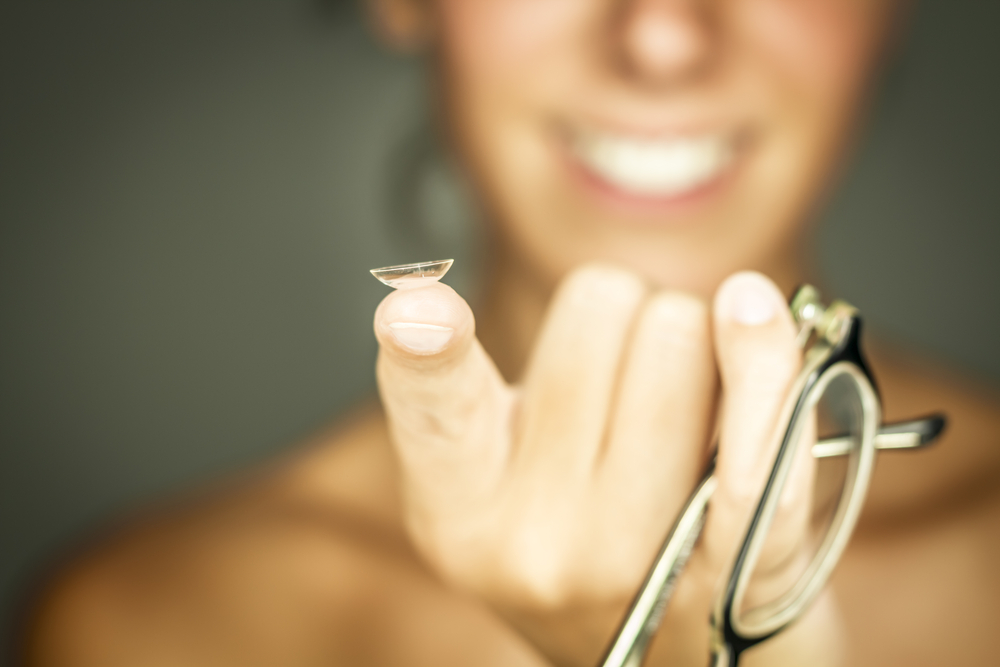Everything You Need To Know About Dry Eyes Caused By Contact Lenses
Everything you need to know about dry eyes caused by contact lenses
Feeling uncomfortable while wearing contact lenses? Do you experience a burning or scratchy sensation in the eyes too, along with redness? You may be suffering from dry eyes. If you have been wearing contact lenses, there is a chance that your lenses have contributed to it. However, they are not the only reason for dry eyes.
How can one know if they are suffering from dry eyes?

- If you have a burning sensation in the eyes, there is ample mucous around them, and your eyes have become sensitive to light, you are most likely suffering from dry eyes.
- You may also suffer from blurry vision or eye fatigue.
- It is best to visit a doctor if this issue persists as it may negatively affect your eyes’ health in the long run.
- If you wear contact lenses, take them off. Contact lenses can be a risk factor for dry eyes and therefore, can worsen the situation.
How do tears help in keeping the cornea oxygenated?
- Everyone has a film of watery liquid spread thinly over their eyes. This film is called the tear film, and the tear liquid contains much more than just water. Tears protect your eyes from infections, allergens, debris, etc.
- The tear film is more important for the cornea than other parts of the eyes because the cornea does not have its own oxygen supply system. It depends on this film of tears for its oxygen supply. This thin film of water attracts oxygen from the atmosphere and passes it onto the cornea.
- When you put on a pair of contact lenses, it covers the cornea and usually displaces the tear film. As this watery liquid is displaced, the cornea is deprived of its oxygen supply system.
- Several doctors and optometrists have studied the connection between contact lenses and dry eyes.
What kinds of contact lenses should one avoid to prevent dry eyes?
- One should avoid contact lenses that displace the tear film from over the cornea.
- People should also avoid contacts that are not gas-permeable as these will dry your eyes out.
- Such lenses either displace tears and precipitate an oxygen deficiency in the cornea, or don’t allow oxygen to enter the cornea. Either way, they can cause your eyes to dry out.
How can one choose the best pair of contact lenses for dry eyes?
- The best contact lenses are gas-permeable and do not displace the tear film from over the cornea.
- A new type of contact lenses called soft lenses are permeable to gases and are hydrophilic too.
- So, on the one hand, these lenses love to stay in contact with water, and on the other hand, they allow oxygen to pass through them.
- If you wear such contact lenses, your eyes won’t face oxygen deprivation, and this can help to prevent dry eyes.
Are contact lenses the only cause for dry eyes?
- Your contacts need not be the only cause of dry eyes.
- Lack of tears is the most common cause of dry eyes. The tear-producing gland above your eyes may be unable to produce enough tears.
- Aging, certain medications, hormone replacement therapy, laser eye surgery, damage to tear gland due to radiation or inflammation, medical conditions like diabetes, etc. are some of the other causes for dry eyes.
Apart from wearing contact lenses, what are the other risk factors for dry eyes?
Apart from contact lenses, here are some other risk factors that can cause dry eyes:
- Gender: Women are more likely to develop a dry eye condition as they experience hormonal changes at various stages of life that also affects their body’s ability to produce a tear film.
- Vitamin A deficiency: Vitamin A is essential for producing tears. So, people with vitamin A deficiency are more susceptible to dry eyes. To prevent this, one can add more carrots, broccoli, etc. to their diet.















